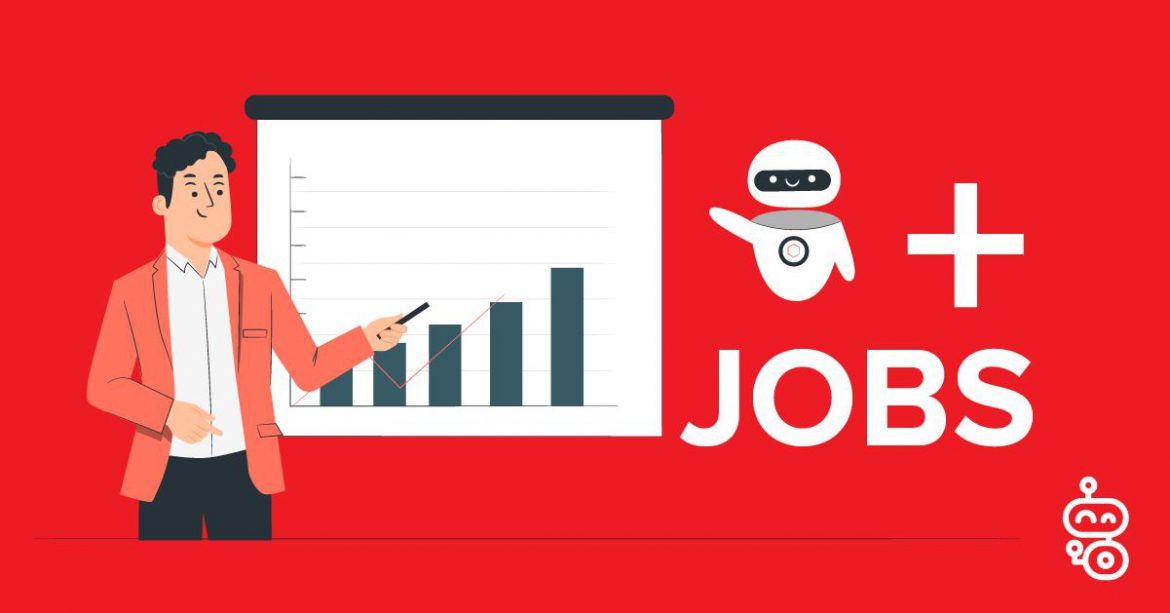AI will create more jobs than it destroys!
Debunking the Myth
In the realm of Artificial Intelligence (AI), there’s a lingering fear that as technology advances, it will displace workers, leading to a surge in unemployment. However, contrary to this apprehension, AI holds the potential to be the most significant job engine the world has ever witnessed. According to the World Economic Forum, the use of AI is expected to create 133 million new jobs worldwide by 2025, while eliminating 75 million jobs. This is projected to result in a net gain of 58 million jobs.
The Disruption Dilemma: Winners and Losers
The natural assumption is that new technology, including AI, would disrupt existing jobs, and that assumption isn’t entirely unfounded. The impact of AI on different sectors will be diverse, creating winners and losers in the realm of AI and robotics. While jobs in healthcare may see an uptick, those in manufacturing might experience a decline. This pattern mirrors historical shifts caused by technological advances such as steam engines and computers.
AI and Job Creation: A Symbiotic Relationship
The Rise of New Careers
One of the remarkable aspects of technological progress is the emergence of entirely new careers. AI and robotics are no exception, offering opportunities for novel forms of employment. Projections indicate that AI will drive faster-than-average job growth in various occupations, including but not limited to accountants, geological technicians, web developers, and customer service representatives. The collaborative synergy between AI and human skills is poised to boost global employment by up to 58 million jobs by 2025, according to the World Economic Forum.
Mitigating Displacement: Investing in STEAM
To navigate the potential “displacement effect” of AI, experts recommend increased investment in STEAM disciplines – science, technology, engineering, art and design, and mathematics. By enhancing skills in these domains, workers can adapt and update their knowledge, aligning themselves with the evolving demands of the job market and complementing the capabilities of machines.
The Positive Outlook: More Jobs, Increased Productivity
AI’s Job Creation Potential
Can AI truly be a net job creator? The resounding answer is yes. Beyond mitigating job losses, AI has the potential to be a prolific job generator. As it permeates various industries, AI opens avenues for diverse employment opportunities, shaping a job market that evolves with technological advancements.
Simultaneous Boost in Productivity
The benefits of AI extend beyond job creation. The integration of AI into workflows has the potential to significantly increase productivity. By automating routine tasks, AI allows human workers to focus on more complex and value-driven aspects of their roles. This symbiotic relationship between AI and human labour sets the stage for a future where productivity gains accompany job creation.
Navigating the Future: Adapting to AI-Driven Changes
Embracing Change and Opportunities
The future of work is intricately tied to the evolution of technology, with AI playing a central role. Rather than fearing displacement, the key lies in embracing change and recognizing the opportunities that AI presents. The shift towards AI-driven employment requires a proactive approach, with individuals and organizations ready to adapt to the changing landscape.
Lifelong Learning and Skill Development
In an era where technology evolves at a rapid pace, the emphasis on lifelong learning and skill development becomes paramount. Individuals must be agile in acquiring new skills, and educational institutions need to align their curricula with the demands of AI-driven industries. This commitment to continuous learning ensures that the workforce remains adaptable and resilient.
The Road Ahead: AI as a Catalyst for Positive Transformation
Shaping a Dynamic Workforce
AI’s role in job creation extends beyond the numerical aspect. It contributes to the formation of a dynamic and diverse workforce, where human ingenuity collaborates with AI-driven efficiency. The synergy between human creativity and machine precision creates a work environment that thrives on innovation and adaptability.
Ethical Considerations: Guiding AI Development
As AI continues to evolve, ethical considerations become crucial. Responsible AI development involves addressing issues of bias, transparency, and accountability. By fostering an ethical framework, the integration of AI into the job market can unfold in a manner that prioritizes fairness and inclusivity.
A Bright Future with AI-Powered Jobs
The narrative around AI and jobs is not one of inevitable displacement but of transformation and opportunity. AI has the potential to create more jobs than it displaces, ushering in an era of enhanced productivity and novel career paths. The journey ahead involves embracing change, investing in skill development, and shaping an inclusive future where AI contributes to positive workforce transformation. The future of jobs with AI is not a threat but a promise of a brighter and more dynamic employment landscape.


